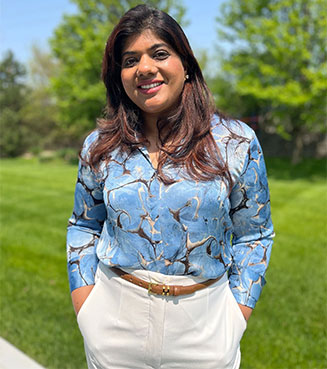The turning-point story behind the birth of Socíale, an employee-owned and minority-owned social equity cannabis dispensary based in Illinois, is one of pain and purpose. After experiencing the mental and physical pain of miscarriages, the owner decided to open her own dispensary to make a difference in other lives.
Changing the Perception of Cannabis
Annu Khot, Founder of Socíale, was born and raised in India, where cannabis has been a part of traditional medicine for centuries. Although she was familiar with cannabis, she didn’t use it until she moved to the U.S. and experienced a number of miscarriages before the birth of her now nine-year-old son.
“Beyond my own experience, I saw how cannabis so dramatically transformed the lives of my other family members and friends,” Khot said. “My sister-in-law had late-stage breast cancer (she has since recovered!), and turned to cannabis to lessen the pain caused by chemo. As a dispensary owner, I not only want to shape the future of cannabis here in the U.S., but also change the perception of cannabis back in India.”

A Successful Cannabis Business in the Making
This is not Khot’s first business feat. For 10 years prior to founding Socíale, she was the Managing Partner of Rely Services and also managed a small real estate portfolio in Illinois. These experiences helped shape her approach to founding Socíale. With hundreds of business contacts and a deep understanding of scaling business from zero to profitable, she was able to make Socíale a success.
Recently, the dispensary secured $3 million in a funding round and is slated to open its doors in the coming weeks. The funding will be instrumental in supporting the expansion of Socíale’s retail footprint across the state and reaching more communities while advocating for social equity. Khot plans on opening 10 Chicago-area cannabis dispensaries over the next five years.
The Struggles of Owning a Cannabis Business
Even though Khot has years of experience under her belt, she still faced many hurdles while bringing Socíale to fruition. “Since I started in the cannabis industry, hearing the word ‘no’ has been a part of my day-to-day. Cannabis isn’t federally legalized — meaning that as an entrepreneur, I don’t have access to traditional banking institutions and can’t secure a typical loan.
“In addition, I can’t openly advertise on mainstream social media platforms. These two realities are just the tip of the iceberg, but it has made my team and I able to quickly pivot and find new avenues to our goal,” Khot said.
Advocating for Social Equity
After Khot was exposed to the power of the plant, she took it upon herself to make a difference in the way underserved and underrepresented communities were involved in the economic opportunities the cannabis industry presented. Her leadership has earned her a spot as one of the Top 50 Women Leaders of Illinois for 2023, and she has received the distinguished Asian Pacific Islander Heritage Award.
“There are still thousands of people incarcerated around the nation for cannabis crimes. While federal pardons are a start, more still needs to be done. Socíale will be partnering with non-profit organizations around the country to lobby the government and push for their release,” Khot said.
In addition, Khot is dedicated to sharing the success of her dispensary with her team. From day one, she has made a commitment to enable profit-sharing at all levels. And as a social equity dispensary, Khot is also hiring employees from underrepresented communities in the workforce.
Building Business Credibility
Socíale is also the first dispensary in the world to be blessed by a Hindu priest.
“I decided to have my Hindu priest bless Socíale to build credibility and endorse our business. It opened up a dialogue in the South Asian community, as people saw it as a stamp of acceptance. When something is approved by a higher authority or power, it changes its perception. The narrative changed from ‘What’s a cannabis dispensary?’ to ‘Wow, a cannabis dispensary!’ It helped spread awareness of the plant and all of the good it can do,” Khot said.
When asked about any advice she would give to entrepreneurs looking to open their own dispensary, Khot says,” Get used to hearing the word ‘no!’ Also, don’t be shy. People in the cannabis industry are very open and willing to share their knowledge and connections with newbies. Veterans have already gone through the tough stuff — so ask them all that you can before you start on your own journey!”




